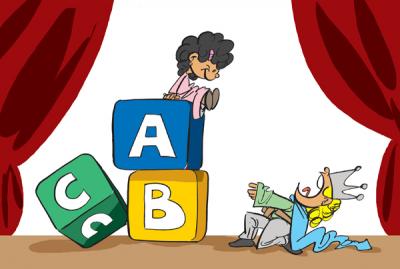It is agreed that drama, like the various other activities done at school, is an important element in the education of our students.
Yet, it does not happen to be popular. In many colleges, drama is inexistent. It is not given the importance it deserves.
Enhancing creative skills
Drama is a confidence-boosting activity. When students find themselves interacting with others, a team spirit is established. Rehearsal demands working together and the student who would otherwise have been confined to a corner due to his timidity or shyness, is pleasantly surprised to discover that, gradually, he is overcoming it.
Knowing that he is accepted in a group is likely to instil confidence in him. This is a significant aspect of personality development.
Drama also allows students to get under the skin of the characters in the selected play. Thus, they extend their understanding of the thoughts and feelings of the character much better than just reading the play. One can have a greater insight into the motivations of a character through acting out a scene.
Drama invites the student to project himself in a different situation from his own. Empathy permits him to inhabit another world and see life in a different light. Consequently, his understanding and appreciation of life is widened.
Textbook knowledge is quite limited in scope. A mere reading of a play tends to be superficial whereas drama would have thrown up nuances that one would have missed at a surface reading.
What is the playwright getting at? Sometimes even several readings of an extract are insufficient to pinpoint this. Group discussion would be a laudable attempt at working out what the writer is trying to convey.
Drama is not just acting. It is additionally about setting and atmosphere. A candid discussion among the participants, with the help of the teacher, might be useful in sharpening imagination. The student feels involved in different departments of a play. A student may not be good at acting as such but may have an eye for décor and evoking the right atmosphere through the setting or costumes.
Whatever the task undertaken by the students during the preparation stage, it is bound to give satisfaction because creativity is involved.
Drama is fulfilling for everyone. One can leave a rehearsal session with a gratifying sense of achievement. When students feel satisfied with what they are doing, they enjoy it and learn from it. It is boredom that kills the interest of students.
One can improve one’s linguistic skills: articulation, pronunciation, rhythm or tone.
Visualizing a scene can be rewarding. No two students will visualize a scene necessarily in the same way. This visualization process is likely to encourage the student to see something from a personal perspective.
Moreover, drama would be ideal do teach students to use body language to express what words cannot.
Experiencing drama might lead one to question one’s own assumptions about people and about life.
A silent and inattentive reading may not always yield the effects the playwright meant to achieve. Acting can.
Another merit is that drama is plenty of fun. Instead of the routine explanation of text and copious note-taking in class, drama is a different way of learning. It is also appropriate to mention that drama is aimed at all students, not just those studying literature.
Some problem areas
If drama is not popular in colleges, it may be because it is time-consuming. The teacher/s (and the chances are that it is often the English and French departments that are involved) are required to work with participants during recess, after school hours, and even during the holidays.
Secondly, most teachers and students are neck-deep in tuition. This plays against giving full attention to drama.
Then, such an activity is not generally viewed as profitable in terms of marks. We still have people at the top who believe that allotting much time to drama would not take the college anywhere – the time had better be spent to teach, set classwork and homework. End-of-year results matter more.
It is when we look at literature purely from an examination point of view that activities like drama take a backseat.
And there is the perception that the teacher who does not produce results is not good.
“Ça va compter pour les examens, monsieur?” is a question that often comes up. The activity not being evaluative, students are not motivated.
Finally, teachers may not find the time to read a vast number of plays to select one that matches the state of maturity and readiness of their students. It is not always easy to find a short, self-contained and complete script. We must also consider the point that very few teachers are trained to organize drama activities.
It would be interesting to see drama occupy the place it deserves in our schools and colleges.
SCHOOL ACTIVITIES : Experiencing Drama
- Publicité -
EN CONTINU ↻
- Publicité -

